🎗️Lonny's War Update- October 570, 2023 - April 28, 2025 🎗️
- Arab source: Israeli officials leaking false claim Qatar sabotaging talks to deflect blame for impasse from PM
An Arab official denies Hebrew media reports claiming that Qatar urged Hamas to reject a recent Egyptian ceasefire proposal.
The source — who is familiar with the negotiations and is not from Qatar — tells The Times of Israel that the reports are being “manufactured” by Israeli officials who are seeking to further harm the negotiations and deflect blame for the failure of the talks away from Prime Minister Benjamin Netanyahu, whose demands have made an agreement all but impossible..
Over the weekend, several Hebrew media outlets published reports that either cited only Israeli officials or no sources at all, claiming that Qatar encouraged Hamas to reject a recent Egyptian proposal for a hostage deal, arguing that Doha could secure a better agreement in the form of a long-term truce.
- Over 200 rabbis, religious leaders call to bring hostages home in petition
Over 200 rabbis urged Israel to prioritize the hostages’ return, even if it means halting fighting, as Hamas offered a full release in exchange for a five-year ceasefire. full article - Jerusalemites hold evening of prayer, song in memory of ‘beautiful six’ slain captives
Jerusalem Mayor Moshe Lion speaks at the start of an evening of song and prayer organized by the families of the “beautiful six,” Hersh Goldberg-Polin, Almog Sarusi, Eden Yerushalmi, Alex Lobanov, Carmel Gat, and Ori Danino, hostages who were killed by their Hamas captors in August 2024.
“We won’t be united or complete if all the hostages aren’t returned home,” says Lion to the applause of the crowd.
“These families paid the highest price,” says Lion, naming all six of the slain captives, whose bodies were recovered by the IDF just days after they were slain in Gaza.
“These hostages are the painful proof that we don’t have time to wait. How much longer can Rom Braslavski, a resident of this city, keep surviving?” Lion asks of another captive.
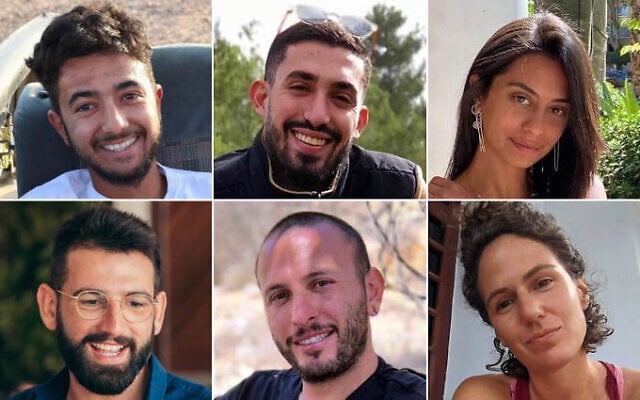 This combination of six undated photos shows hostages, from top left, Hersh Goldberg-Polin, Ori Danino, Eden Yerushalmi; from bottom left, Almog Sarusi, Alexander Lobanov, and Carmel Gat. They were murdered by their Hamas captors in Gaza in August 2024. (The Hostages Families Forum via AP)
This combination of six undated photos shows hostages, from top left, Hersh Goldberg-Polin, Ori Danino, Eden Yerushalmi; from bottom left, Almog Sarusi, Alexander Lobanov, and Carmel Gat. They were murdered by their Hamas captors in Gaza in August 2024. (The Hostages Families Forum via AP)Ziv Braslavski, around 13, speaks at the event about how he misses his oldest brother and going to Beitar soccer games with him.
“I don’t miss any soccer game but Ram has missed many, I miss him so,” he says. “It doesn’t matter what team you root for, Beitar or Hapoel, we’re all brothers, we’re all people. This week, we mark Yom Hazikaron and Yom Haatzmaut but in our house, we can’t mark independence as long as Rom isn’t home. Rom, I miss you and I promise you’ll be home soon, stay strong.”
Jon Polin, the father of Hersh, thanks the crowd of hundreds for all the support now and always.
“Let us be together in song, prayer and hope for the hostages,” he says.
“Come, our family, come, our city, come, our country, our nation, our hostages, let’s sing and pray all of us together, come,” says Rachel Goldberg-Polin.
Father of slain hostage Ori Danino: ‘With unity we will bring them home’
A prayer rally at Safra Square in Jerusalem, for the release of hostages being held in the Gaza Strip, April 27, 2025. (Chaim Goldberg/ Flash90)Alon Gat, the younger brother of Carmel Gat, one of the “beautiful six” hostages killed in captivity, speaks at an event in Jerusalem about being taken captive from Kibbutz Be’eri with his young daughter on October 7 and ultimately escaping, while his wife, Yarden Roman-Gat, was taken hostage, his mother, Kinneret, was killed, and his sister was taken hostage.
His wife was released in November 2023, but his sister Carmel was murdered in Gaza in August 2024, and “could have been saved,” says Gat.
“The difference between life and death is very fine,” he says. “Let’s save lives.”
Yitzhak Danino, the brother of fellow slain captive Ori Danino, recites a prayer at the event, and says that all six in that tunnel were from different backgrounds.
“They were together, and only together can we bring them all back,” he says.
A prayer rally for the release of hostages held in the Gaza Strip, at Safra Square in Jerusalem, April 27, 2025. (Chaim Goldberg/Flash90)
Michal Lobanov, the widow of Alex Lobanov, speaks about her younger son, Kai, now 1, who will never know his father.
“We can’t forget that there are children still waiting to see their fathers,” she says. “Let’s make sure they get to reunite with them.”
The evening ends with Lobanov’s brother reciting the names of the remaining 59 hostages.
At the conclusion of the event, Elhanan Danino, Ori’s father, brings all the family members of the six murdered hostages — Ori, Carmel, Alex, Almog Sarusi, Hersh Goldberg-Polin and Eden Yerushalmi — onstage to sing Hatikvah together.
“God Almighty, look at this nation, at this city, at these fans, fans of Beitar, fans of Hapoel, from all sides,” he says.
Danino says there are 6,000 people at the event in the capital’s Safra Square, 6,000 people for the six families.
“Call your mayors and each city should go sing and pray, because with unity, we will bring them home,” says Danino, his voice thick with tears. “Bring thousands and start bringing back Israeli unity.”
🎗️Day 570 that 59 of our hostages in Hamas captivity
**There is nothing more important than getting them home! NOTHING!**
“I’ve never met them,But I miss them. I’ve never met them,but I think of them every second. I’ve never met them,but they are my family. BRING THEM HOME NOW!!!”
There is no victory until all of the hostages are home!אין נצחון עד שכל החטופים בבית
Tomorrow evening begins our Memorial Day
Flags with black ribbons placed on graves of fallen security personnel ahead of Memorial Day
Military officials across the country place 25,417 miniature flags at half-staff adorned with black ribbons and the word “Yizkor,” or remembrance, on the graves of soldiers, police officers and other security personnel, as the state prepares to mark Memorial Day from sundown tomorrow.
During the ceremony, IDF Chief of Staff Lt. Gen. Eyal Zamir addresses bereaved families, stating, “The Land of Israel preserves the memory of its fallen throughout its length and breadth; in the expanses where they grew up, along the trails they walked, and in the places they defended with their lives.”
“When we look today at each headstone and grave, we will remember that alongside the pain of their loss, there is also pride in the independence of our nation,” he adds.
Israel will come to a standstill Tuesday evening at 8 p.m. for a minute-long memorial siren to commemorate the country’s fallen soldiers and terror victims. The siren will be followed by the lighting of a memorial flame for the fallen at the Western Wall, the site of the official state commemoration ceremony. Memorial services will be held across the country.
On Wednesday, a two-minute siren will sound at 11 a.m. to mark the start of ceremonies at cemeteries nationwide.
Later in the day, another official ceremony will take place at Mount Herzl military cemetery in Jerusalem between 7 and 8 p.m., marking the end of Memorial Day and the beginning of Independence Day.
Red Alerts - Missile, Rocket, Drone (UAV - unmanned aerial vehicles), and Terror Attacks and Death Announcements
*5:45pm - A drone launched at Israel “from the east” was shot down by the Israeli Air Force a short while ago, the military says.
The drone was apparently launched from Yemen.
- Fresh demonstrations against Hamas rule reported in northern Gaza
Media outlets in Gaza report that dozens of protesters in Beit Lahiya, in the northern part of the Strip, are calling for an end to the war.
Children hold signs reading “We want to live” and “Stop the war,” and are also filmed chanting “Hamas out.”
In recent weeks, sporadic demonstrations have taken place in Beit Lahiya against Hamas and in favor of ending the war. videos
- 27 killed in Israeli strikes on Gaza, Hamas-controlled authorities say
Israeli strikes on the Gaza Strip overnight and into today killed at least 27 Palestinians, according to local health officials from Hamas-controlled authorities.
There is no comment from the Israeli military.
The figures cannot be independently verified and do not differentiate between civilians and combatants.
Israel has said it seeks to minimize civilian fatalities and stresses that Hamas uses Gaza’s civilians as human shields, fighting from civilian areas including homes, hospitals, schools, and mosques. Palestinian civilians say nowhere in Gaza is safe. link Our leaders and senior military officers always state that we seek to minimize civilian fatalities, but the truth is very different. In this war, we have killed tens of thousands of civilians and finally the Head of the Air Force recently instituted a new rule for pilots that he, personally has to authorize bombings from Air Force jets due to the heavy civilian casualty count.
Gaza and the South
- Strike on Beirut targeted a Hezbollah precision missile warehouse, says Israel
Israel attacked a Hezbollah precision missile warehouse in Beirut earlier today, say Prime Minister Benjamin Netanyahu and Defense Minister Israel Katz in a joint statement, adding that the missiles “posed a significant threat to Israel.”
“Israel will not allow Hezbollah to grow stronger and pose any threat to it — anywhere in Lebanon,” say the senior officials.
They stress that Israel will not Beirut’s Dahiyya suburb to serve as a sanctuary for Hezbollah.
“The Lebanese government bears direct responsibility for preventing these threats,” they warn.
The IDF also says the airstrike targeted a facility where Hezbollah stored precision missiles.
“The storage of missiles in this infrastructure site constitutes a blatant violation of the understandings between Israel and Lebanon, and poses a threat to the State of Israel and its civilians,” the military says.
Before the strike carried out by fighter jets, the IDF issued a warning to civilians in the area.
Lebanese president condemns Israeli strike on Beirut, calls on US and France to intervene
Lebanese President Joseph Aoun condemns the Israeli strike in Beirut in a statement issued on his behalf.
He calls on “the United States and France, as guarantors of the ceasefire agreement, to assume their responsibilities and compel Israel to halt its attacks immediately.” He also says that Israel’s continued destabilization will intensify tensions in the region.
- IDF extends compulsory military service for men amid growing troop shortage
Military extend service by four months to a full three-year term, including suspending pre-release leaves for soldiers, impacting both active and reserve forces
The Israel Defense Forces (IDF) announced it will extend compulsory military service due to a manpower shortage caused by heightened security challenges. Compulsory service will be extended by four months, with these additional months classified as reserve duty, allowing soldiers to complete a total of three years of service.The IDF has also decided to suspend leaves traditionally given to soldiers prior to their release, requiring them to serve a full three years before discharge.The decision comes in response to difficulties in maintaining troop levels after months of intense fighting and significant casualties. The IDF aims to reduce pressure on the reserve forces, some of whom have been called to serve for extended periods, putting strain on their finances and families.The government had previously attempted to pass legislation extending compulsory service to three years, up from the current two years and eight months. However, the bill faced opposition from ultra-Orthodox members of the coalition, who have demanded an exemption for their constituents from military service.Prime Minister Benjamin Netanyahu had pledged to pass a new draft bill as part of his coalition agreement with the Haredi parties but has been unable to reach a consensus within his own party, which opposes granting exemptions for Haredi men in the wake of the October 7 Hamas massacre and the ongoing war.The additional four months of service will benefit soldiers financially, as reserve duty is compensated by the government. The IDF has warned that the measure is a temporary solution to current manpower shortages.“At the moment, we are short 10,000 troops, 7,000 of them in combat units,” the IDF stated.Despite efforts to limit the duration of reserve service, some units have been called to serve an additional two and a half months in 2025. Before the war, reserve soldiers typically served an average of 20 days a year, but some have already accumulated 500 days of service. link This, too is due to Netanyahu's only interest: himself. In order for him to continue to hold his failed coalition together, he needs to keep the Haredi parties happy and exempt from the army despite the desperate need for more conscripts to the army. Most of the population wants everyone to serve equally and that is a risk to Netanyahu's overriding desire to stay Prime Minister no matter what, so he risks the security of the country and puts the onus of service on all those who serve and legalize the full exemption of all the Haredim of army age forever. - Israel's Gaza strategy slammed: ‘No military solution,’ says former MK
Former MK Mossi Raz says one reason Israel is struggling to defeat Hamas is the lack of a clear goal for what victory would actually look like
There is no way for Israel to achieve its military goals, according to former MK Mossi Raz.
Speaking this week on ILTV’s Insider, Raz explained that the government identified two objectives at the start of the war on October 7, 2023: releasing hostages and fighting Hamas — “two targets that for sure there is no military way to do both of them,” he said. “Probably, there is not even a military way to do one of them.”
Raz said that Israel is still fighting in Gaza because the IDF has thus far failed to destroy Hamas and release the hostages, forcing the army to return again and again. He added that the current government is pushing for the “use of full power. They only know the language of violence.”
Beyond the military challenges, Raz said another reason Israel is struggling to defeat Hamas is the lack of a clear goal for what victory would actually look like.
“They [the government] do not know what they want if they go to war or decide to end the war,” Raz said. “Who will be the leader in Gaza after the war?”
Raz advocated for an immediate ceasefire agreement, even if it required concessions to Hamas. His view aligns with a recent poll released by the KAN news agency, which found that a majority of Israelis would support a hostage-for-ceasefire deal that allowed for the release of all 59 hostages and hostage bodies from Gaza in exchange for ending the war and releasing thousands of terror prisoners.
However, Raz’s position was challenged in studio by Foreign Ministry envoy Fleur Hassan-Nahoum, who said that his perception was “a delusion of the left wing.”
“They [the left-wing] think that somehow you can just sit down and make a deal with people who very clearly want to kill you. And yes, you can blame [Prime Minister Benjamin] Netanyahu all you want, but it was national security consensus, and it was a consensus of the government and the opposition for 20 years, that appeasing Hamas was the way forward, that appeasing Hamas was going to bring us results.”
Hassan-Nahoum argued that Hamas is an Islamic terrorist group that understands only one language — the language of force — and that Israel must defeat them in a way that leaves no doubt about who has prevailed.
“That's how we got the peace treaty with Egypt. That's how we got the peace treaty with Jordan, when they realized they couldn't get rid of us,” Hassan-Nahoum said.
Despite their opposing views, both Raz and Hassan-Nahoum agreed on one critical point: Israel must have a plan for the day after the war in Gaza.
“We need to have a plan,” Hassan-Nahoum said. “We need to strengthen the voices that have been coming out against Hamas within the Gaza Strip, without the Strip, and we need to bring in regional partners from the Middle East to think about how we deal with Gaza the day after this war, whenever that comes.” link
Ronen Bar says Netanyahu’s affidavit is ‘full of inaccuracies, biased quotes and half-truths’
Shin Bet chief Ronen Bar doubles down on his allegations that Prime Minister Benjamin Netanyahu pressured him into acting unlawfully for personal and political considerations, and lambastes the premier for failing to take responsibility for the policy of allowing Qatari funds to flow to Hamas in Gaza.
In a statement to the press following Netanyahu’s rejection of these allegations in an affidavit to the High Court of Justice, Bar insists that all of his allegations are “absolutely true” and supported by documentation he provided to the court.
“The things the prime minister wrote in his affidavit are full of inaccuracies, biased quotes and half-truths aimed at taking things out of context and changing reality,” says Bar.
“Senior security officials have taken responsibility for the intelligence failure [on October 7]. But the prime minister never took responsibility for the quiet policy of funding Hamas, which was dictated directly by the prime minister,” adds Bar.
“This historic failure of mistaken policy built-up Hamas, eroded deterrence and contributed to fears of miscalculation in the decision-making of senior security officials, that night.”
- Ronen Bar responds to Netanyahu's affidavit: "Riddled with inaccuracies, biased quotes, and half-truths"
The head of the Shin Bet fires back after being repeatedly called a "liar" in Netanyahu's counter-affidavit to the High Court of Justice. Bar wrote in his statement that "Netanyahu's misguided policy built Hamas and led to a historic failure" and said that "unlike senior security officials, the Prime Minister has never taken responsibility." What did he call a "particularly blatant distortion"?
Following the counter-affidavit submitted by Prime Minister Benjamin Netanyahu, in which he repeatedly called Shin Bet head Ronen Bar a "liar," Bar issued a sharp response last night (Sunday) to the claims. He argued that Netanyahu's words were "riddled with inaccuracies aimed at altering reality," called the section concerning October 7th a "particularly glaring distortion," and stated that "Netanyahu's misguided policy built Hamas and led to a historic failure."
"All the details in the classified and unclassified affidavits I submitted are absolute truth, all backed by numerous documents that I, as head of a state organization, chose to submit only to the court," Bar wrote at the beginning of his response to the Prime Minister's affidavit to the High Court of Justice. "The truth is that I was dictated a statement on behalf of the Prime Minister, which I was required to sign and which, in practice, prevents the Prime Minister's continuous testimony in his trial."
Bar wrote that "this phenomenon of pressure from the Prime Minister to influence professional opinions has occurred multiple times. The truth is that I was required to provide information about Israeli citizens who are protest activists. And the truth is that I was instructed by the Prime Minister that in a constitutional crisis, I must obey the Prime Minister and not the court." In Netanyahu's affidavit, he did not explicitly deny Bar's claim that in such a case he must obey him and not the High Court, only writing that "this was not in the transcript."
According to Bar, "The words written by the Prime Minister in his affidavit are riddled with inaccuracies, biased quotes, and half-truths aimed at taking things out of context and altering reality. An example of a particularly glaring distortion in the Prime Minister's words relates to the situational assessment I conducted on the night of October 7th. In this context, the Prime Minister chose to omit the numerous operational directives given and even claimed twice that I did not instruct to pass the intelligence to the Military Secretary. The truth is the opposite, as documented in the Shin Bet's operational log and submitted to the Prime Minister as part of the investigation, where it is clearly written: 'The key points of the discussion must be relayed to the IDF Chief of Staff and the Military Secretary.'"
Bar addressed Netanyahu's accusations against him regarding the night of October 7th, writing that "contrary to the claims in the affidavit, all investigations show that it was the Shin Bet that alerted the security system on the night of October 7th. Senior security officials took responsibility for the intelligence failure, but for the policy of quiet and funding Hamas, dictated directly by the Prime Minister—the Prime Minister has never taken responsibility. This historic failure of misguided policy is what built Hamas, eroded deterrence, and contributed to the fear of miscalculation in the decision-making of senior security officials, even on that night."
In conclusion, the Shin Bet head wrote that "today, the necessity of establishing a state inquiry commission to uncover the truth, which all Israeli citizens deserve, becomes even clearer. Alongside the necessity of the Shin Bet head's ability to withstand pressures placed upon him and the importance of the decision before the court."
As mentioned, Netanyahu claimed in the affidavit he submitted in response to Bar's sharp affidavit to the High Court that the Shin Bet head lied regarding warnings before the October 7th massacre, the handling of escalation from Gaza, his testimony in his trial, and his attitude toward protests against him—and presented a series of documents intended to refute the Shin Bet head's claims. Netanyahu did address Bar's central claim—that the PM demanded he obey him and not the High Court in a constitutional crisis—but did not explicitly deny it. "Bar's blindness is the greatest intelligence failure in the history of the State of Israel," Netanyahu accused at the beginning of his affidavit. link As I have said so many times, when presented with a situation to choose who is telling the truth between Netanyahu/Prime minister's office and anyone else, always choose someone else. Netanyahu is the consummate liar and his office does the same for him. When faced with evidence of the truth, he/his office either doesn't respond or they say 'so what' and this is the norm, not the exception. Therefore, in the case of Netanyahu vs. head of the Shin Bet, Bar, I choose to believe Bar absolutely.
- Israel launches Hebrew-language website to commemorate immigrants killed since Oct. 7
Ahead of Israel’s Memorial Day, the Immigration and Integration Ministry launches a website to commemorate those killed on October 7, 2023, and in the ensuing war.
The website presents the stories of 136 immigrant soldiers who fell in battle and immigrant civilians who were killed.
Among those listed are British-born lone soldier Nathanel Young, who was killed fighting terrorists on October 7, and French-Israeli citizen Celine Ben David Nagar, who was murdered on her way to the Nova music festival.
The site is currently in Hebrew only, but will be translated to English and other languages in the future, the ministry says.
“The goal of the commemoration project is to honor the memory of the fallen heroes, and to tell the story of immigrants who made an extraordinary contribution to the war effort,” says Immigration and Integration Minister Ofir Sofer. “This is everyday heroism that deserves national recognition.”
- The Region and the World
- Saudi Arabia, Qatar to pay Syria’s outstanding World Bank debt of $15 million
Saudi Arabia and Qatar announce that they will pay Syria’s debt to the World Bank totaling roughly $15 million, according to a statement published by the Saudi Press Agency.
“The ministries of finance in the Kingdom of Saudi Arabia and the state of Qatar jointly announce their commitment to settle Syria’s outstanding arrears to the World Bank Group, totaling around $15 million,” the statement says.
- Syria rejects Kurds’ call for creation of decentralized state
The Syrian presidency rejects a Kurdish call for a decentralized state, warning against attempts at separatism or federalism by the minority group.
“We reject clearly any attempt to impose a separatist reality or to create separate entities under the cover of federalism… without a national consensus,” the presidency says in a statement in which it also condemns “the recent activities and declarations” of the Kurdish-led Syrian Democratic Forces that “call for federalism.”
- Israeli tourist in Japan asked to sign war crimes declaration at Kyoto hotel
Kyoto’s Wind Villa hotel requires Israeli guest to sign declaration denying involvement in war crimes; Israeli ambassador condemns act as discriminatory; hotel manager defends move, citing fears after Israel’s Gaza operation
An Israeli tourist traveling in Japan said he was stunned when a hotel in Kyoto asked him to sign a declaration stating he had not committed war crimes during his military service in the IDF as a condition for check-in.The tourist, who recently stayed at the Wind Villa Hotel in Kyoto, said the incident occurred after he presented his Israeli passport at reception. "The clerk handed me this form and told me that without signing it, I wouldn't be allowed to check in," said the man, who served as a combat medic in the Navy reserves.The form; Wind Villa Hotel in Kyoto
According to the tourist, the form required him to declare that he had not committed war crimes, including rape, murder of individuals who had surrendered or attacks on civilians. "It’s ridiculous and absurd," he said. "I told him we don't kill women and children. Why would we do that?"The Israeli initially refused to sign, telling the clerk he did not want to "get into politics." However, the hotel employee informed him that all Israeli and Russian guests were required to sign the declaration. "In the end, I decided to sign it because I have nothing to hide," he said. "The statement is true—I did not commit any war crimes, and Israeli soldiers do not commit war crimes. I signed because I didn’t want to create problems, and because this form means nothing." He added that he did not believe the clerk harbored any ill will toward Israel, describing him instead as supportive of peace. "I don't think he's antisemitic, just misinformed," he said. The form, which the tourist shared, stated: "I have never been involved in any war crimes that violate international law and humanitarian law; I have never committed war crimes, including but not limited to: attacks on civilians (children, women, etc.), killing or mistreating those who have surrendered or been taken as prisoners of war; torture or inhumane treatment; sexual violence, forced displacement, or looting; any other acts that fall under Article 8 of the Rome Statute of the International Criminal Court (ICC). "I have never planned, ordered, aided, abetted, or incited war crimes, nor have I participated in such acts. I pledge to continue complying with international law and humanitarian law and never to engage in war crimes in any form," the document read. Following the incident, Israeli Ambassador to Japan Gilad Cohen sent a sharply worded letter to Kyoto Governor Takatoshi Nishiwaki, describing the troubling event and raising concerns about potentially discriminatory practices in Kyoto’s hospitality sector against Israeli tourists. "This discriminatory act, based solely on nationality, caused the guest significant emotional distress and discomfort," Cohen wrote. "We view this incident as extremely serious and unacceptable. It constitutes a blatant violation of Japan’s Hotel Business Law and the values of equality and non-discrimination that we believe are shared by our two nations. Particularly concerning is the fact that this does not appear to be an isolated case." Speaking to Ynet, Cohen added, "There is and will be no place for discrimination against Israelis, not in Japan and not anywhere else. Japanese authorities have zero tolerance for such cases and have previously taken firm action in a similar incident at another hotel in Kyoto. We will continue to stay vigilant at the embassy and ensure that Israeli tourists can continue to enjoy the Land of the Rising Sun." The governor of Kyoto informed the Israeli ambassador that the matter has been referred to Kyoto’s city authorities, who dispatched an official to the hotel to investigate the incident on suspicion of a violation of hotel business regulations. In a response to Ynet, the hotel manager said, "I don't think it is ridiculous. It is mandatory to serve in the army in your country. Since Israel launched a military operation in Gaza in October 2023, we do not know who may have been involved, as young Israelis are required to serve in the army." He continued, "We cannot distinguish between our guests. In any case, we believe we have the right to ensure who we are hosting in our hotel. This step was also intended to guarantee our safety. "For us, war is something distant, and we have never met people who killed women and children or bombed schools," he added. "It is beyond imagination. This was my personal decision to require the form in order to ensure our security. We have not violated any hotel business law in Japan. A city official has already visited our hotel, conducted an investigation and asked me questions, and I answered. I am confident that we have not broken any laws." A similar case occurred in Kyoto in June of last year. Following a letter from Ambassador Cohen at the time, the Kyoto governor publicly instructed that no such violations should occur, and then-Foreign Minister Kamikawa announced the matter at a press conference. The hotel employee involved was dismissed. link - US says more than 800 targets in Yemen hit since mid-March, hundreds of Houthi fighters killed
The United States has hit more than 800 targets in Yemen since mid-March, killing hundreds of Houthi rebel fighters, including members of the group’s leadership, the US military says.
Washington’s forces have hammered the Iran-backed Houthi rebels with near-daily air strikes since March 15 in an operation dubbed “Rough Rider,” seeking to end the threat they pose to vessels in the Red Sea and Gulf of Aden and reestablish US regional “deterrence.”
“Since the start of Operation Rough Rider, USCENTCOM has struck over 800 targets. These strikes have killed hundreds of Huthi fighters and numerous Houthi leaders,” the military command responsible for the Middle East says in a statement.
“The strikes have destroyed multiple command-and-control facilities, air defense systems, advanced weapons manufacturing facilities, and advanced weapons storage locations,” CENTCOM says.
Despite the strikes, the Houthis — who control large swaths of Yemen and have been at war with a Saudi-led coalition backing the internationally recognized government since 2015 — have continued to claim attacks against both US vessels and Israel.
CENTCOM says that “while the Houthis have continued to attack our vessels, our operations have degraded the pace and effectiveness of their attacks. Ballistic missile launches have dropped by 69 percent. Additionally, attacks from one-way attack drones have decreased by 55 percent.”
“Iran undoubtedly continues to provide support to the Houthis. The Houthis can only continue to attack our forces with the backing of the Iranian regime,” the military command says.
“We will continue to ratchet up the pressure until the objective is met, which remains the restoration of freedom of navigation and American deterrence in the region,” it adds.
Acronyms and Glossary
ICC - International Criminal Court in the Hague
IJC - International Court of Justice in the Hague
MDA - Magen David Adom - Israel Ambulance Corp
PA - Palestinian Authority - President Mahmud Abbas, aka Abu Mazen
PMO- Prime Minister's Office
UAV - Unmanned Aerial vehicle, Drone. Could be used for surveillance and reconnaissance, or be weaponized with missiles or contain explosives for 'suicide' explosion mission
Join my Whatsapp update group https://chat.whatsapp.com/IQ3OtwE6ydxBeBAxWNziB0
Twitter - @LonnyB58 Bluesky - @lonny-b.bsky.social
Twitter - @LonnyB58



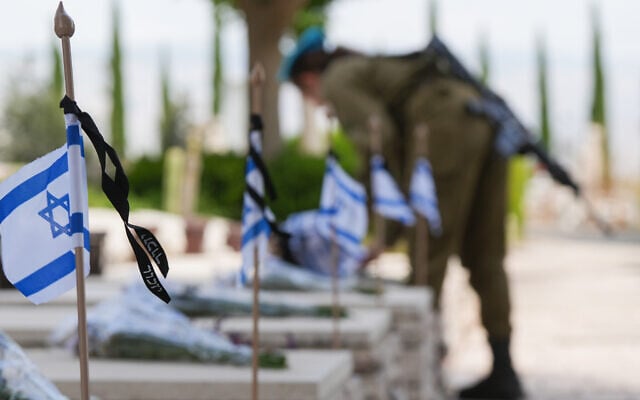

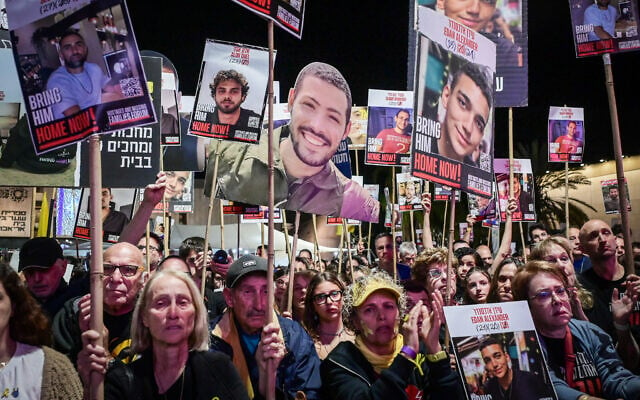
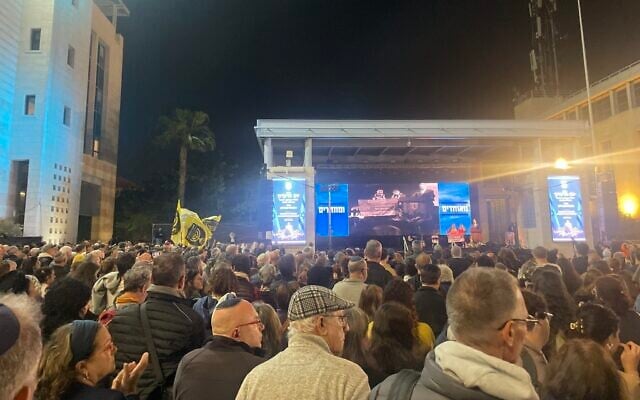


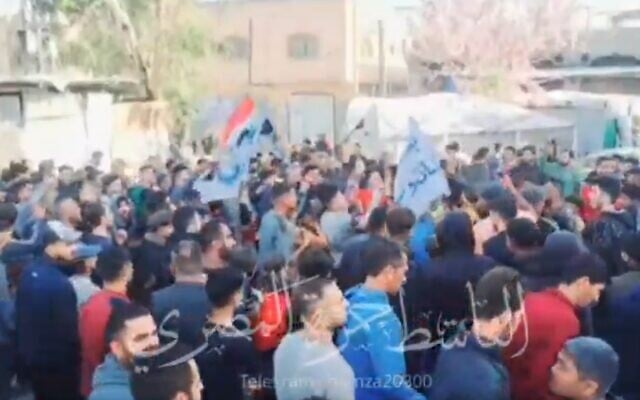

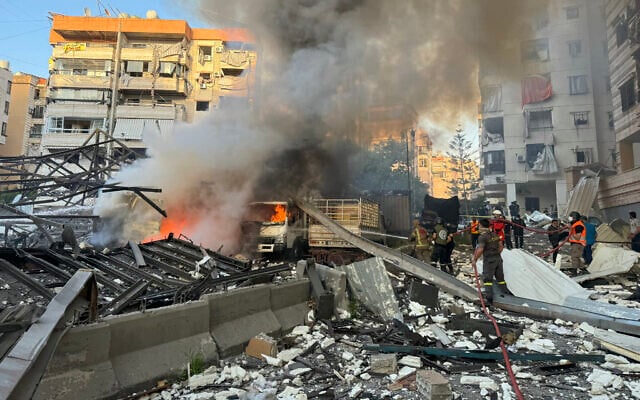
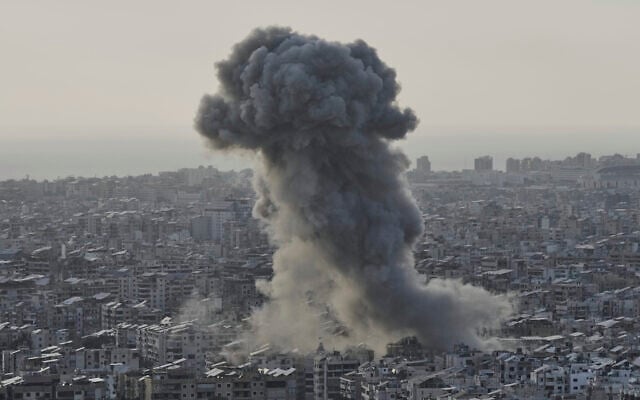





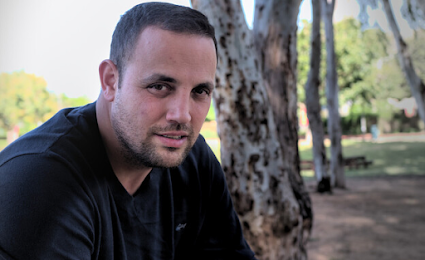










Comments
Post a Comment